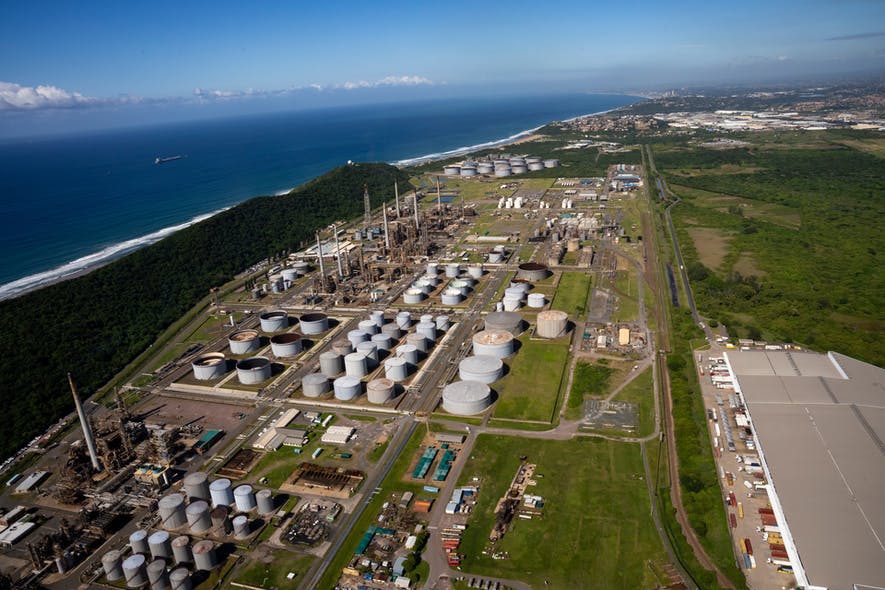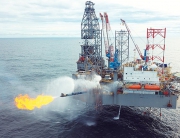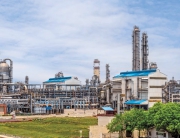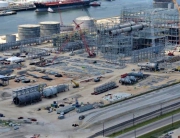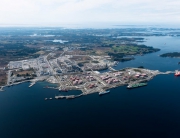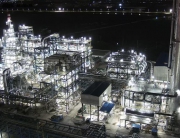Shell PLC subsidiary Shell Downstream South Africa and bp PLC’s bp Southern Africa (bpSA) have decided to halt further spending and idle processing operations by the end of first-quarter 2022 at 50-50 joint venture South African Petroleum Refineries (Pty.) Ltd.’s (SAPREF) 180,000-b/d refinery in Durban, South Africa.
Scheduled to begin no later than end-March 2022, the spending freeze and operational pause will last indefinitely, but the refinery will be prepared for possible restart in the future, including in the event of its potential sale, bp and Shell said in a Feb. 10 joint statement.
“The decision has been taken to allow an informed finalization on the various options available to the shareholders, a sale option being the most preferred. Until decisions about the future of the plant have been made—including a possible change of ownership—[we’re] unable to commit to further investment in the refinery,” the companies said.
The decision to idle operations at the site follows consultation with the South African government, unions, and SAPREF employees, the latter of which holding full-time status will not be impacted, according to bp and Shell.
“Leading up to the refining pause, we have put contingencies in place to ensure that this decision does not impact our customer-facing businesses in South Africa or our fuel supply obligations,” said Taelo Mojapelo, bpSA’s chief executive officer.
Both companies said they will use other existing assets and trading arrangements to ensure ongoing security of fuel supply to the South African market.
Established in 1963 and historically accounting for 35% of South Africa’s refining capacity, SAPREF is the nation’s largest refinery and one of only two currently operating in the country.
South African product specifications
Confirmation of the impending halt to SAPREF’s operations follows a late-2021 warning from the South African Petroleum Industry Association (SAPIA) that revised petroleum product specifications—and a too-strict deadline to meet them— issued in late-August 2021 by South Africa’s Department of Mineral Resources and Energy (DMRE) would likely jeopardize the nation’s refining sector.
In a Sept. 27 release, SAPIA said the Petroleum Products Specifications and Standardsmandate for use of ultralow-sulfur gasoline and diesel products from Sept. 1, 2023, leaves too short a timeframe for domestic refiners to implement upgrades to accommodate production of fuels in compliance with the new regulations.
As a result, the impossible timeframe for implementation would “likely render [the country’s existing] refinery fleet obsolete within [2] years, making South Africa largely dependent on imports for its petroleum products requirements…[raising] considerable questions about the security of [products supply] and [worsening] the trade balance,” according to SAPIA.
SAPIA has yet to issue an official update on where discussions with DMRE currently stand.
While Glencore PLC consistently has ignored requests from OGJ regarding confirmation of the current operational status and future of subsidiary Astron Energy (Pty) Ltd.’s 100,000-b/d at Milnerton, Cape Town, South Africa, Engen Petroleum Ltd. confirmed via an Apr. 23, 2021, release that it was converting its 120,000-b/d Enref refinery at Merebank, in Wentworth, south of Durban, into a fuels terminal.
Aside from SAPREF’s ongoing operations, the only other confirmable South African refinery still in operation is Sasol Ltd. and partner TotalEnergies SA’s jointly owned National Petroleum Refiners of South Africa (Pty) Ltd.’s (Natref) 108,000-b/d refinery in Sasolsburg.
Sasol and TotalEnergies own the Natref refinery through subsidiaries Sasol Mining (Pty) Ltd. (63.64%) and TotalEnergies Marketing South Africa (Pty) Ltd. (36.36%).
Source: www.ogj.com


